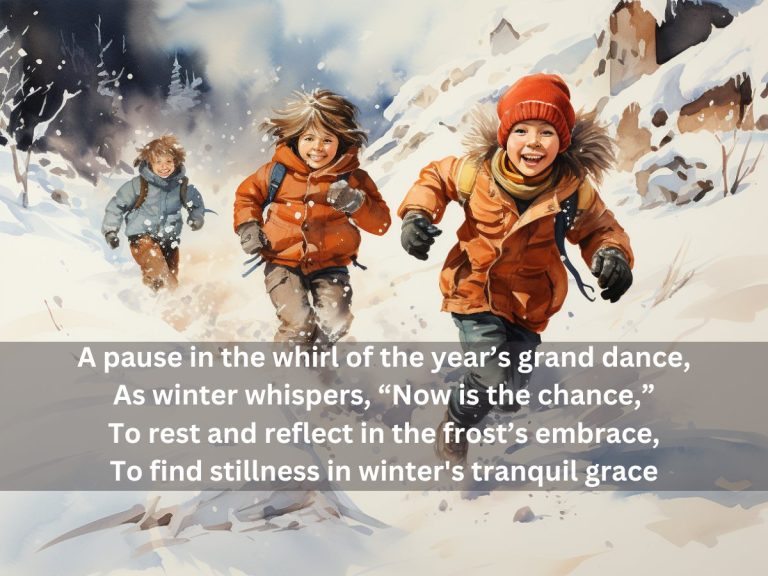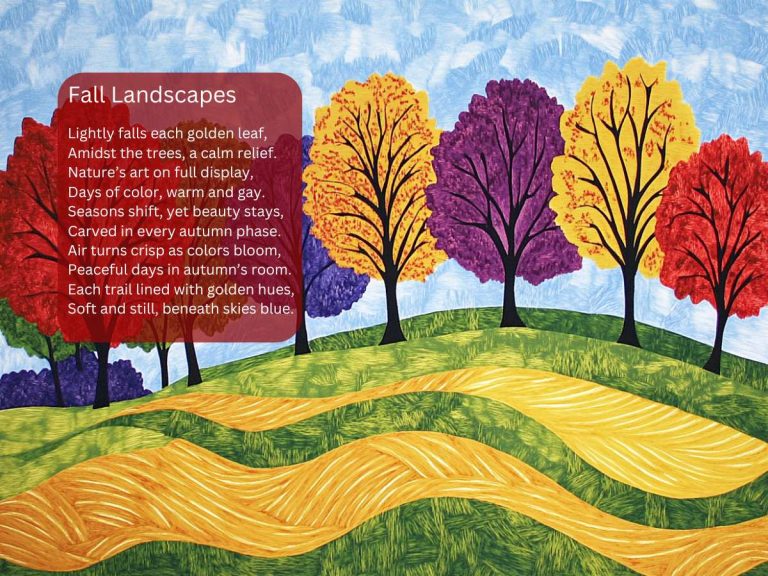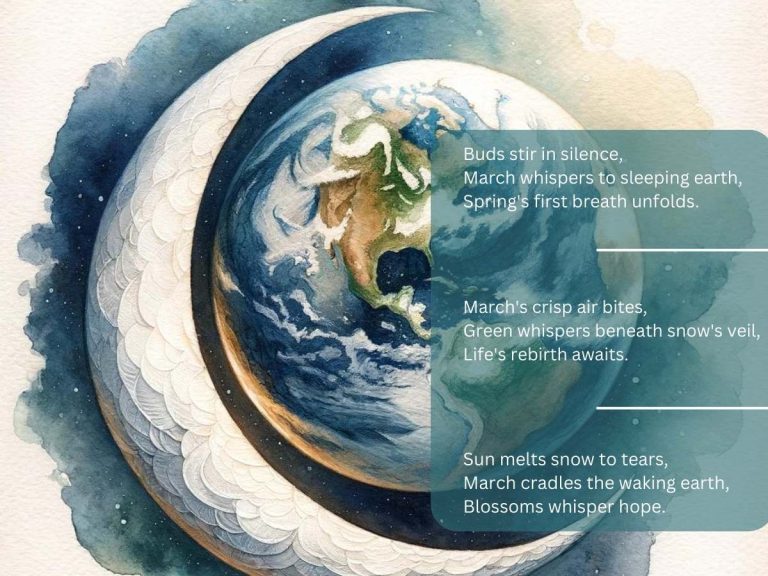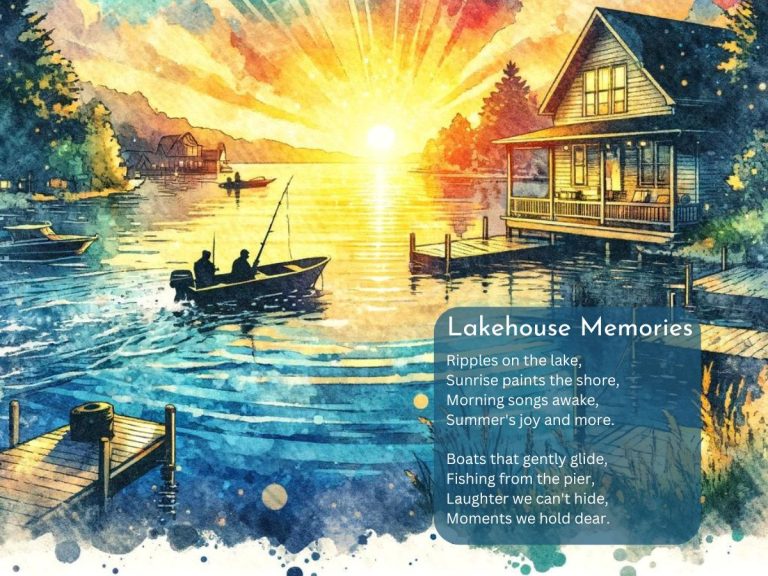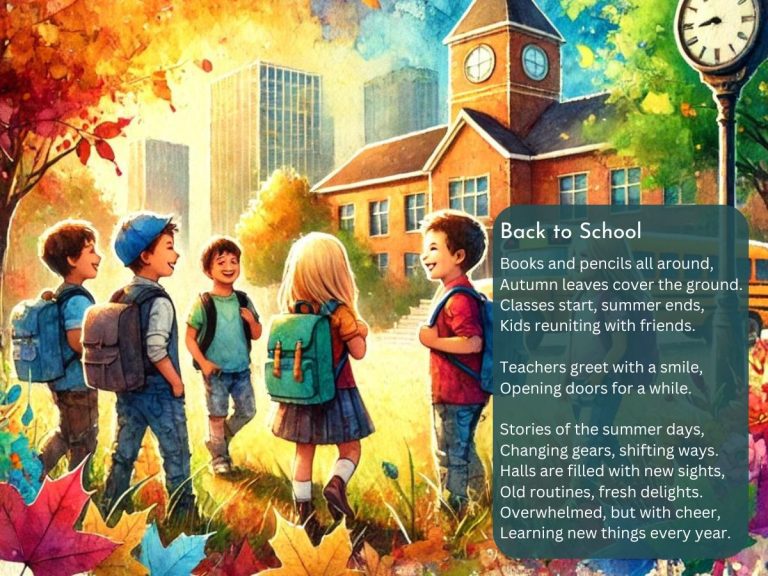Stopping by Woods on a Snowy Evening
Whispers of snow in a world so hushed and white,
Where woods stand silent in the fading light.
My sleigh halts here, by these woods so deep and fair,
A moment's peace, in the cool, crisp winter air.
Stopping by Woods on a Snowy Evening, a pause in time,
A serene embrace of nature, so sublime.
No words spoken, yet much is understood,
In the silent communion of the woods.
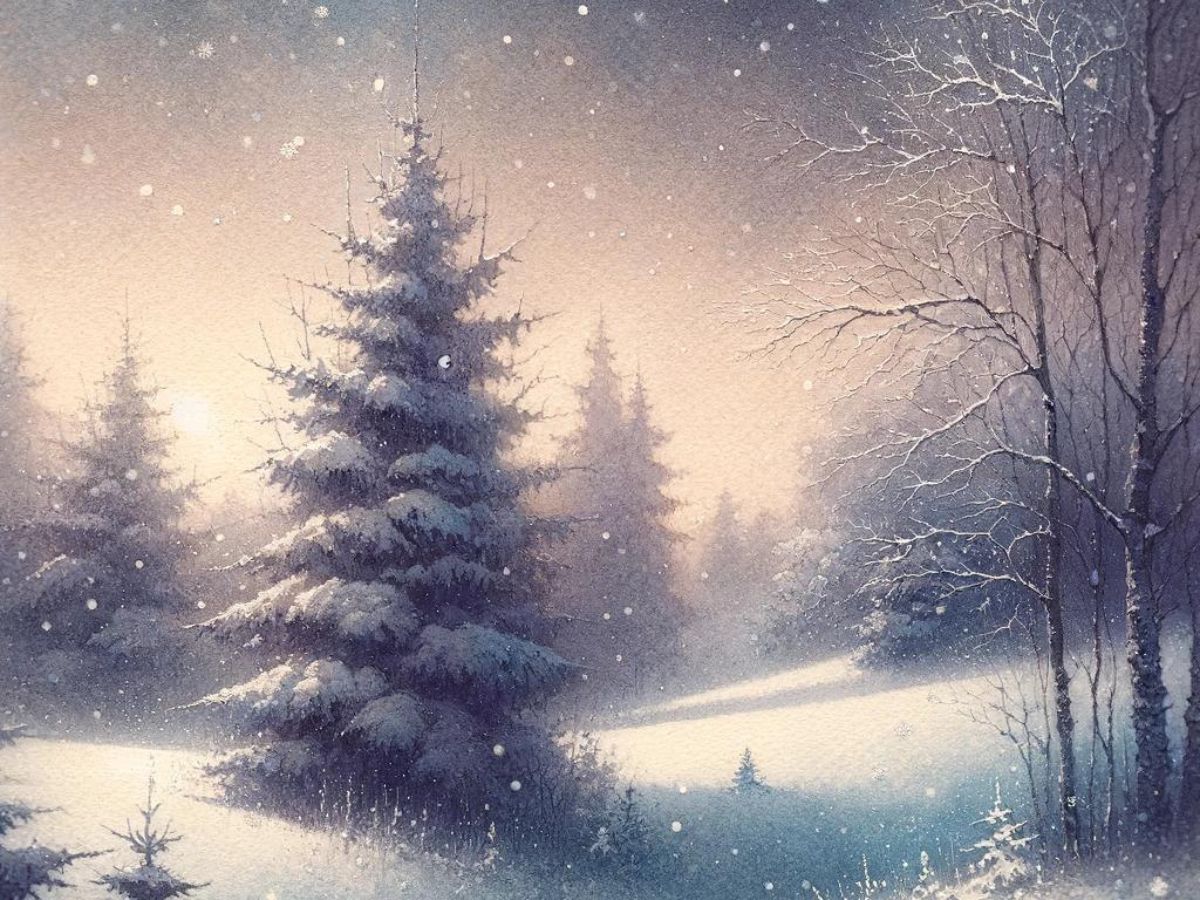
Meaning & Summary
This poem captures the tranquility and introspective beauty of a quiet moment spent near the woods on a snowy evening. It reflects on the solace found in nature’s embrace, away from the hustle and bustle of life. The imagery of snow-covered woods and the fading light evokes a sense of peaceful solitude, inviting the reader to pause and appreciate the simple beauty of the world around us. The poem suggests a deep, unspoken connection with nature, emphasizing the restorative power of such quiet moments to calm the mind and soothe the soul.
Inspirations Behind
I was inspired by a solitary evening walk, as the snow fell gently around me, transforming the landscape into a serene, otherworldly scene. The quiet beauty of the snow-covered woods and the rhythmic sound of my footsteps in the fresh snow stirred a profound sense of peace within me. This poem is my attempt to capture that moment of reflection and the deep, quiet joy that comes from simply being in nature. It’s a tribute to the beauty of the natural world and its ability to provide comfort and solace in moments of introspection.
Analysis of Stopping by Woods on a Snowy Evening
Themes
Solitude and Reflection: The poem conveys a profound sense of solitude, as the speaker stops alone to watch the snow fill the woods. This moment of pause allows for reflection, both on the scene at hand and, perhaps, on life itself.
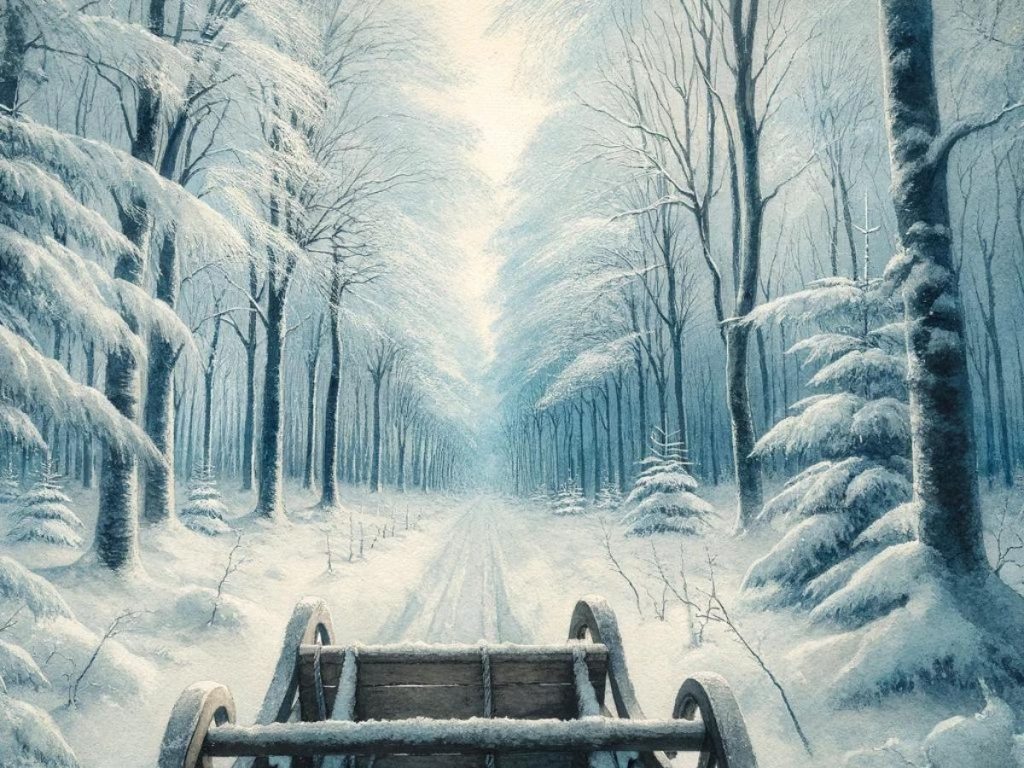
The Lure of Nature vs. the Responsibilities of Life: The woods symbolize nature’s beauty and allure, tempting the speaker to stay longer. However, the repeated final lines “And miles to go before I sleep” remind us of the responsibilities and duties that call the speaker back to society and life’s obligations.
The Passage of Time and Mortality: The quiet, snowy evening setting may also symbolize the passage of time and the inevitability of mortality. The speaker’s contemplation in the face of the tranquil woods could reflect an awareness of life’s fleeting nature.
Imagery
The poem is rich in vivid imagery that evokes the senses and paints a serene picture of the scene:
- “Whispers of snow” and “woods stand silent” create a sense of the quiet and gentle nature of the snowfall.
- The imagery of the “snow-covered woods” and the “cool, crisp winter air” evokes a sense of the cold yet peaceful winter atmosphere.
Symbolism
The Woods: Often symbolize mystery, danger, or beauty in literature. In this poem, they may represent the unknown or the allure of escaping from the responsibilities of life.
The Snowy Evening: The setting of the poem symbolizes peace and quiet but also the end of a day, which could metaphorically suggest the end of life or a period of rest before continuing on life’s journey.
The Sleigh: Represents the journey of life. Stopping beside the woods may symbolize a momentary pause to reflect on life’s beauty and challenges before continuing on.
Overall Significance
“Stopping by Woods on a Snowy Evening” invites readers to reflect on the balance between the demands of life and the desire for peace and solitude. It captures a universal moment of contemplation, where the beauty of nature calls into question the journey of life and the obligations that drive us forward. The poem’s simplicity belies its deep exploration of life’s complexities, offering a timeless meditation on the human experience.
This analysis highlights the poem’s layers of meaning, showcasing how its themes, imagery, and symbolism converge to create a richly contemplative work that resonates with readers’ own experiences of solitude, duty, and the beauty of the natural world.

